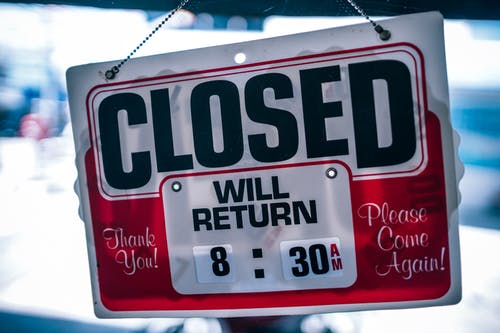Insider Secrets for Researching a Franchise – What They Don’t Want You to Know!
 In this continuation of our special franchising series, we will share information most franchisors do not want you to know. At this point you have decided to pursue a franchise concept. You believe it may be a fit for you. You now face the difficult part of researching the possible opportunity.
In this continuation of our special franchising series, we will share information most franchisors do not want you to know. At this point you have decided to pursue a franchise concept. You believe it may be a fit for you. You now face the difficult part of researching the possible opportunity.
Most public information is heavily weighted toward the franchisor. Essentially you are relying on information they provide to you, reference checks with current and past franchisees, along with trade publications. We will discuss what may not be obvious while you are performing your due diligence. Reading this and digging in may help you avoid a brand that is not as solid as it appears on the surface. I also encourage you to use legal and financial professionals before signing anything.
Key areas to consider when researching:
1) Concept – The number of new concepts is increasing. When you “buy in” to a franchise it is reasonable to expect a proven concept along with trademarks and intellectual property. How long have they been in business? How long have they been franchising? Has the concept changed – if so how long ago and how often does it change? What was the business impact? Take caution if the concept was created recently by founders of another “successful” concept and if the franchisor does not own and operate a reasonable number of locations based on size. Getting in on the “ground level” may mean the franchisor will be learning on your dollar.
Examine Item 19 in the Franchise Disclosure Document, FDD. The is the area that a franchise lists information related to financial performance. If it isn’t in there the franchisors cannot legally make claims not supported in item 19. Two reasons it will not contain information. The first is performance is poor. The other is the franchisor is extremely concerned on that information being used against them in litigation. Be wary of any verbal claims on performance.
Small Business, Big Lessons: Considering a Franchise – Step One: Know Thyself Before Investing
2) References – Check with current and past franchises. You will want a sample of long term and new owners. People at the headquarters change over time and you will get a reasonable idea if things are solid and or improving or if it is time to run away! One little know area is some franchisees essentially place a gag clause in transfer agreements. That is they will not allow them to talk about the franchise many in the form of a “non-disparagement” clauses. Thus, it may be hard to extract information from past franchises with negative experiences.
3) Trade publications – Another little known fact is some of the “pay to play” that occurs in trade publications. It is a symbiotic relationship. Many of the franchisors push content to the trade magazines making their job easier or take out extensive advertising. That may explain why some of the listing at the top have had unprecedented closings, owner bankruptcies, and they are still listed as a top concept. The publications can be used as a consolidated sources of costs, such as franchisees fees and royalties, but be wary of any ratings.
4) The hidden sources – As with item 3 above – consider the sources on these web sites – since they may be backed by attorneys and use anonymous sources. Normally I am not a big fan of anonymous sources but due to the potential that an ex-franchise may be limited to warn others of a bad experience through threat of litigation by the franchisor – this may be the only way to spread the word, UnhappyFranchisee and Blue MauMau are two sites in addition to a Google search.
5) Professional advice – Always consult with an attorney and financial professional. Understand your liabilities and risk. Remember, the agreement is to protect the franchisor. There is generally no performance guarantee for them – only what you must do and the penalties. Understand the amounts. There may be ways to add an addendum for terms that are not reasonable. If the franchisor tells you they can’t do that – you need to weigh the risk but that may be a sign of the way they operate and not positive for the long term. Be wary of references to your performance being measured by an “Operations Manual”. These are not included in the franchise agreement and can be changed without warning or your consent and cost you a significant amount of money over the long term.
Small Business, Big Lessons: Personal Guarantees
Think through
 As Kenny Rogers said in The Gambler, “you need to know when to walk, know when to run”. It can be the same with franchisees. This article is not intended to alarm you but to help give some insider tips during what can be an emotional time. The sales person is counting on you to fall in love with the concept and ignore any contrary and conflicting information. Example includes – must have been a bad owner, they were not engaged.
As Kenny Rogers said in The Gambler, “you need to know when to walk, know when to run”. It can be the same with franchisees. This article is not intended to alarm you but to help give some insider tips during what can be an emotional time. The sales person is counting on you to fall in love with the concept and ignore any contrary and conflicting information. Example includes – must have been a bad owner, they were not engaged.
What you are looking for is a pattern. If the franchisor doesn’t want to own and operate locations, have a proven track record, or disclose financial information – why would you want to join? Also keep an eye out for churn. That is the number of locations that either close or transfer to new owners each year.
Also, sometimes it is better to consider being the second owner of a franchise – you may be able to have better insights on possible profit and loss. Until a location is open and operating, it is difficult for most franchises to predict revenue. This may be a solid alternate if you trust the brand and in turn reduce your risk.
Tell me about any ah ha moments you had in your franchise research. Small business – know the insider secrets!
Small Business
About the Author:
 Gregory Woloszczuk is an entrepreneur and experienced tech executive that helps small business owners grow their top and bottom line. Gregory believes in straight talk and helping others see things they need to see but may not want to with a focus on taking responsibly for one’s own business. He and his wife, Maureen, started GMW Carolina in 2006.
Gregory Woloszczuk is an entrepreneur and experienced tech executive that helps small business owners grow their top and bottom line. Gregory believes in straight talk and helping others see things they need to see but may not want to with a focus on taking responsibly for one’s own business. He and his wife, Maureen, started GMW Carolina in 2006.












